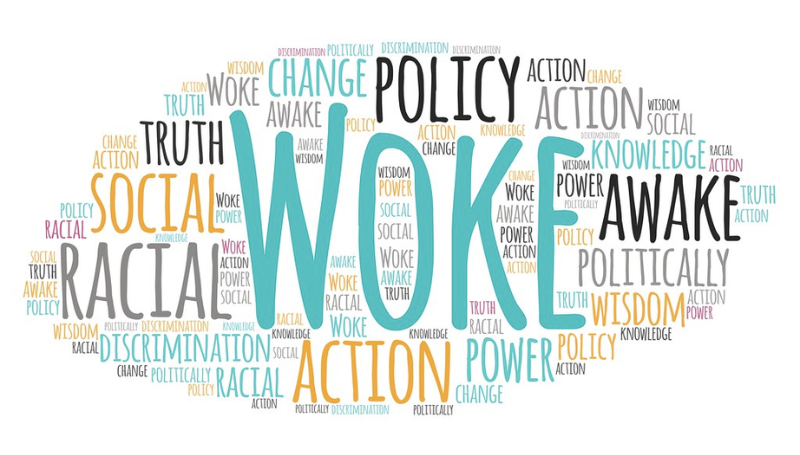Phoebe Maltz Bovy
Common Sense with Bari Weiss, Sept. 4, 2022
“While the specific term cancel culture wasn’t used, the concept existed and was indeed driving cultural concerns.”
At a church book sale in my Toronto neighborhood, I found The Official Politically Correct Dictionary and Handbook, a bestseller by Henry Beard and Christopher Cerf first published 30 years ago. I always gravitate to books like this—first to see whether there is anything new in this world, and then to remind myself that the overly simplistic answer is no. (See also the 1995 compendium Debating Sexual Correctness. The #MeToo discourse existed prior to #MeToo.) It seems we’re living through a kind of 1990s revival—fueled, I suspect, by nostalgia for pre-Covid, pre-9/11, pre-internet times. Or maybe just by teenagers’ timeless desire to dress the way everyone did decades ago.
The front cover of the dictionary shows a man, a woman, and a dog, each affixed with labels such as “hair disadvantaged” (he’s balding), “woman of noncolor” (she’s white), and “nonhuman animal companion” (it’s a shaggy dog). None of them, though especially the woman and the dog, would be out of place in a 2022 farmers market. (Again: cyclical fashions.)
The back cover bears a warning: “Be sensitive or else!,” with the follow-up, “Welcome to the nineties. But you better watch what you say. If you’re not politically correct, not even your pet—oops, your animal companion—will love you anymore.” Beard’s author bio begins, “Although Henry Beard is a typical product of elitist educational institutions and a beneficiary of a number of negative action programs, he has struggled to overcome his many severe privileges.” And Cerf’s: “Christopher Cerf is a melanin-impoverished, temporarily abled, straight, half-Anglo-, half-Jewish-American male.” Privilege disclaimers in the early 1990s! I had to have it.
A compare-and-contrast of 1990s PC and contemporary so-called wokeness could fill volumes, so I’m mostly restricting myself to a too-close read of this one book. I’m asking only a few questions: What do the differences between the two phenomena indicate about the specificity of each moment? Did PC have the same place in the culture as wokeness later would?
And to the fact of the book itself: Could something like this exist today—that is, a light-hearted poke at left-wing pieties? The existence of The Babylon Bee Guide to Wokeness suggests yes, but humor does not exactly define the anti-wokeness crowd. Instead, the backlash is a mix of earnestly concerned liberals who think the left is shooting itself in the foot (Hi!) and conservatives delighted that the left is shooting itself in the foot. Humorlessness dominates today—perhaps due to increased polarization or a sense that the stakes are too high to joke around. Those who have taken on wokeness with humor, from comedian Dave Chappelle to evolutionary biologist Colin Wright, have faced protests, social media bans, and even physical attacks. Woke and anti-woke alike gravitate toward dead seriousness. … SOURCE


